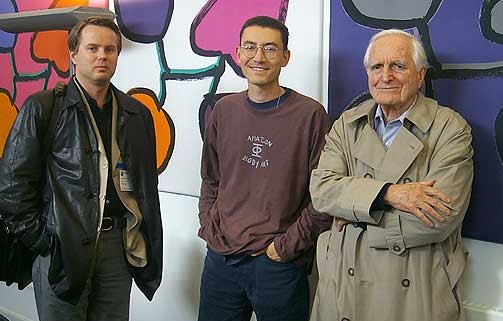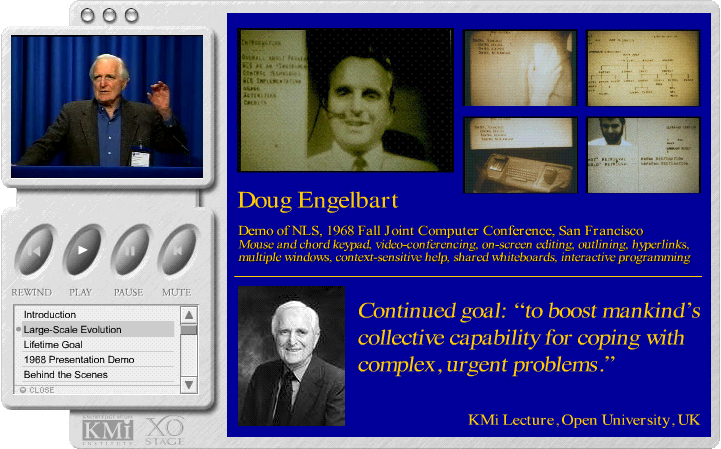Douglas Engelbart (inventor of much of today’s personal computing) accompanied by Frode Heglund (UCL) spent 23 June with Simon Buckingham Shum, demonstrating technologies and discussing the overlap in their visions of future computing infrastructure for knowledge work.
Engelbart is recipient of the US National Medal of Technology "for creating the foundations of personal computing including continuous real-time interaction based on cathode-ray tube displays and the mouse, hypertext linking, text editing, on-line journals, shared-screen teleconferencing, and remote collaborative work".
Heglund leads the Liquid Information project at UCL’s Interaction Centre UCLIC, designed to deliver some of Engelbart’s ideas on hypertextual navigation via intuitive web browser-based tools.
Simon Buckingham Shum demonstrated tools from the projects which he leads in the Hypermedia Discourse strand of KMi’s research, Compendium (visual, semantic hypertext for collective sensemaking) and ClaiMaker (scientific publishing and discourse on the Semantic Web, from the ScholOnto project), both of which focus on representing ideas and arguments as manipulable, visualizable networks for students, researchers and analysts to construct – and contest – different perspectives on a problem.
It became clear to all of us that these were prime examples of what Engelbart had long envisioned as Dynamic Knowledge Repositories, supporting the mediation and capture of dialogue, the collective updating by a distributed community of its knowledge, and the provision of advanced services that generate knowledge ‘products’ – flexible views onto the underlying knowledge repository.
Related Links:
- Engelbart’s Afterword to KMi book Visualizing Argumentation
- Doug Engelbart website, including the historic 1968 Mother of All Demos
- KMi Scholarlyl Ontologies Project



